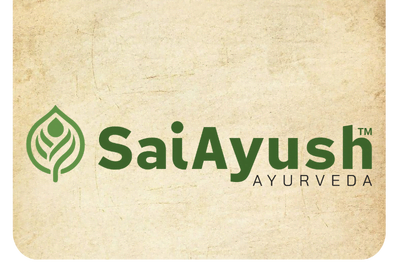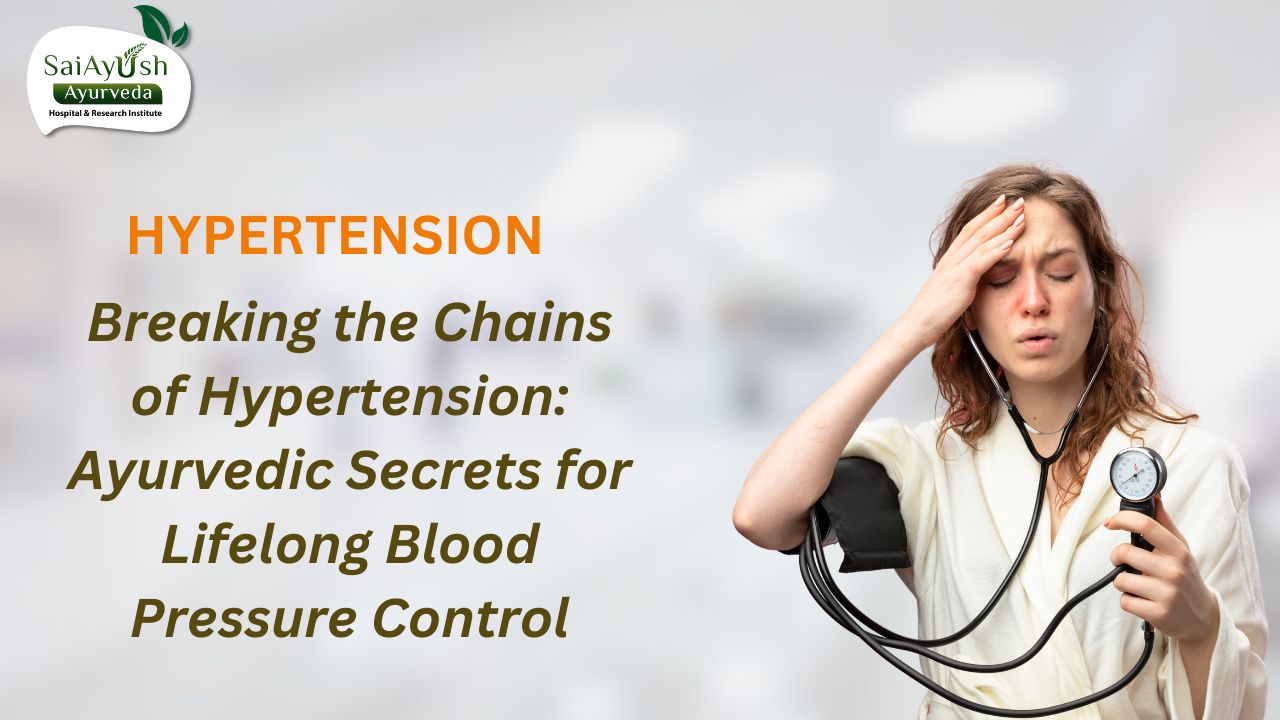Hypertension, commonly known as high blood pressure, has emerged as a significant health concern affecting millions of people worldwide. Ayurveda, a traditional Indian system of holistic healing, offers a unique approach to understanding and managing hypertension. Ayurveda aims to enhance general health and reestablish balance by addressing the underlying causes and imbalances within the body.
Learning About Hypertension
Hypertension occurs when the force exerted by blood against the walls of blood vessels is consistently greater than normal. Blood pressure is measured in millimeters of mercury (mmHg), with two values: systolic pressure over diastolic pressure. A healthy blood pressure reading is typically around 120/80 mmHg. However, hypertension is diagnosed when the blood pressure consistently exceeds 130/80 mmHg. Hypertension, according to Ayurveda, is caused by an imbalance in the doshas that govern the body’s functioning (Vata, Pitta, and Kapha). When these doshas are disturbed, it affects the proper functioning of the cardiovascular system, leading to elevated blood pressure levels. Ayurveda views hypertension as a manifestation of underlying imbalances and offers a holistic approach to address them.
What are the risk elements and underlying causes?
Hypertension can result from multiple underlying factors, such as genetics, lifestyle choices, and medical conditions. Although genetic predisposition may play a role in its development, lifestyle factors are very important. Unhealthy eating habits, sedentary lifestyle, excessive salt intake, alcohol consumption, obesity, stress, and smoking are common risk factors for developing hypertension. Additionally, certain medical conditions like kidney disease, hormonal disorders, and sleep apnea can also contribute to elevated blood pressure.
Symtoms that is shown in hypertension patients
Hypertension is frequently referred to be a silent killer since, in most cases, it does not show symptoms until it is somewhat advanced. Regular blood pressure readings are crucial because most people with high blood pressure have no symptoms for years. Yet, in a few instances, people may also feel symptoms including headaches, shortness of breath, lightheadedness, chest pain, or visual problems. These vague symptoms may be a sign of underlying health problems and demand a medical assessment.
What are the complications of hypertension?
If unchecked, elevated blood pressure can result in serious health issues. An extended period of high blood pressure can put the heart under stress, which can result in diseases like coronary artery disease, heart failure, or arrhythmias. Additionally, it can harm blood vessels, raising the risk of kidney disease, peripheral artery disease, and strokes. An elevated risk of acquiring metabolic diseases like diabetes is also strongly linked to hypertension.
Balancing the Doshas: In Ayurveda, restoring balance in the doshas is the key to managing hypertension. The treatment approach may vary based on the predominant dosha involved. Here’s a general overview:
Vata Imbalance: Vata dosha is responsible for the movement of blood and nutrients within the body. When Vata is imbalanced, it can lead to hypertension. To pacify Vata, Ayurvedic practitioners may recommend warm, nourishing foods, regular meal times, and gentle exercise routines like yoga or tai chi. Ayurvedic herbs such as Ashwagandha and Brahmi are also beneficial for calming Vata.
Pitta Imbalance: Pitta dosha is associated with heat and metabolism. When Pitta becomes aggravated, it can result in high blood pressure. To balance Pitta, individuals are advised to consume cooling foods like fresh fruits and vegetables, coconut water, and herbal teas. Stress management techniques such as meditation and deep breathing exercises are also helpful in reducing Pitta. Ayurvedic herbs like Shatavari and Guduchi are known for their Pitta-pacifying properties.
Kapha Imbalance: Kapha dosha governs stability and structure within the body. An excess of Kapha can lead to fluid retention and weight gain, which in turn contribute to hypertension. To address Kapha imbalance, Ayurveda recommends a diet that is light, warm, and spicy. Regular physical activity, including aerobic exercises, can help stimulate circulation and reduce Kapha. Ayurvedic herbs like Trikatu (a blend of ginger, long pepper, and black pepper) are commonly used to balance Kapha.
- Shirodhara: This therapy involves pouring a stream of warm herbal oil on the forehead, which helps in relaxing the mind and reducing stress.
- Abhyanga: It is a full-body massage with medicated oils that promotes relaxation, improves blood circulation, and supports overall well-being.
Lifestyle Modifications:
In addition to balancing the doshas, Ayurveda emphasizes the importance of lifestyle modifications to manage hypertension. Here are some recommendations:
- Maintain a Healthy Diet: Follow a balanced diet that includes fresh fruits, vegetables, whole grains, lean proteins, and healthy fats. Steer clear of processed foods, too much salt, and refined sugars.
- Stress Management: Chronic stress can contribute to hypertension. Engage in relaxation techniques such as meditation, deep breathing exercises, and regular gentle exercise to reduce stress levels.
- Regular Exercise: Engage in moderate physical activity like brisk walking, swimming, or yoga to improve cardiovascular health and lower blood pressure.
- Herbal Support: Ayurvedic herbs such as Arjuna, Sarpagandha, and Punarnava are known for their beneficial effects on blood pressure. Consult with an Ayurvedic practitioner for guidance on appropriate herbal remedies.
Conclusion : Ayurveda offers a holistic approach to managing hypertension. Lifestyle modifications, herbal remedies, and therapeutic treatments like Shirodhara and Abhyanga can help reduce blood pressure and promote overall well-being. However, it’s important to consult a qualified Ayurvedic practitioner for personalized guidance. Integrating Ayurveda with conventional medical care can provide a comprehensive approach to managing hypertension and improving cardiovascular health.
Discover the healing power of Ayurveda with our latest article at Sai Ayush Ayurveda Hospitals! Dive into the age-old wisdom that can rejuvenate your body and mind. Click here to read more:



